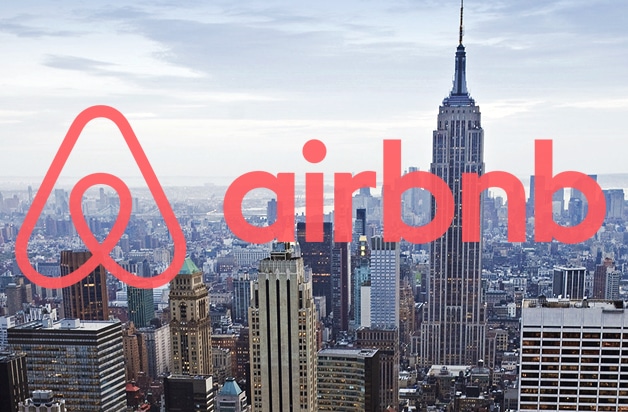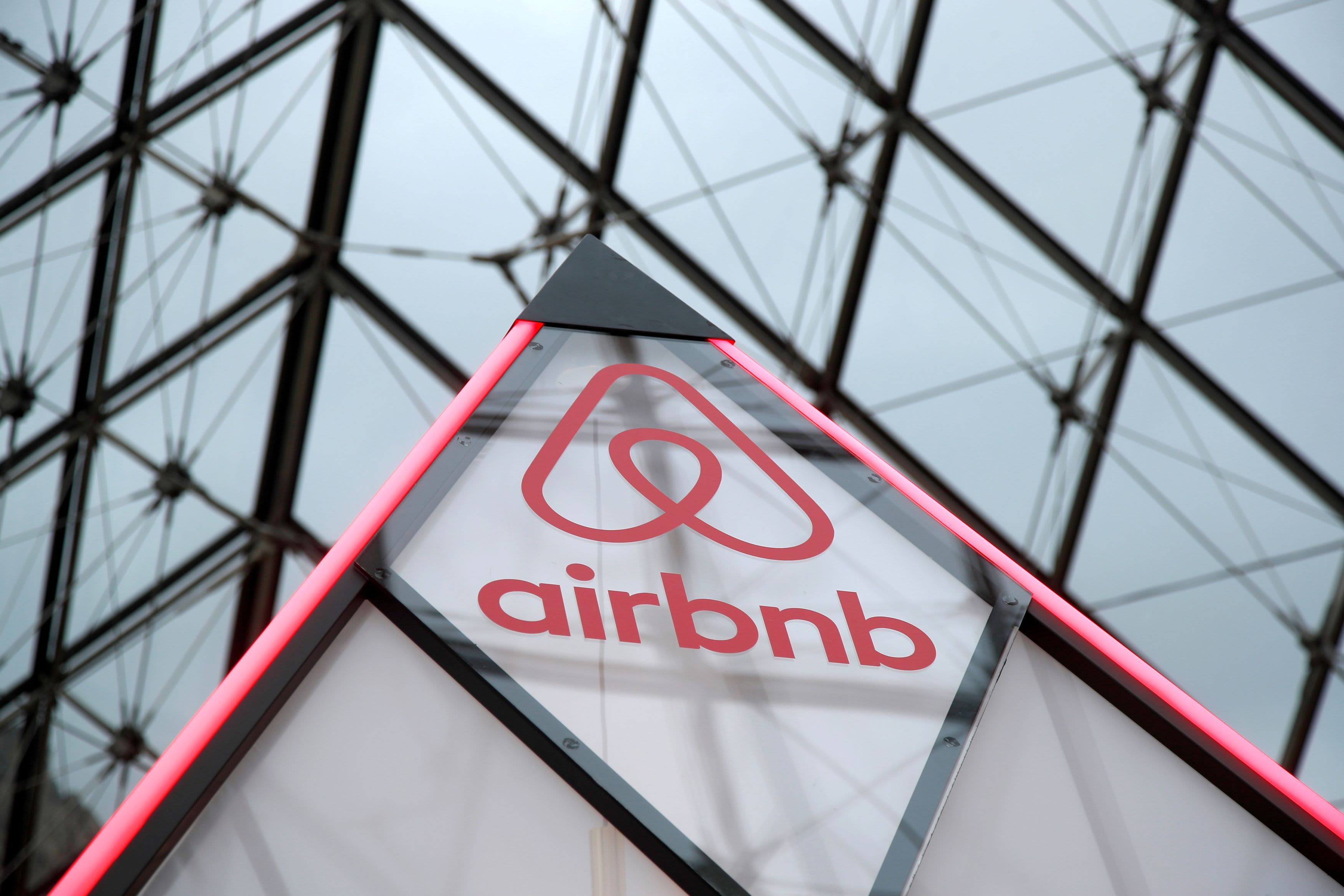How Does AirBnB Use AI?
By RG team · 22 min read
Last Updated on June 16, 2023
Wait a minute...

Introduction

As entrepreneurs and content creators, it's important for us to stay up-to-date with the latest advancements in technology and how they are shaping industries. And there's no denying that AI has revolutionized the way Airbnb manages its short-term rental platform, improving customer satisfaction and personalization.
With more than 100 signals taken into account, Airbnb's ranking models utilize machine learning algorithms to deliver the most relevant search results to users. This early deployment of machine learning played a vital role in Airbnb's success, allowing them to provide an intuitive user experience that sets them apart in the tech industry.
Back in 2014, Airbnb recognized the potential of AI and began leveraging it to match hosts and guests effectively. By considering various factors such as demand, seasonality, local events, and many other dynamic variables, Airbnb's Smart Pricing feature adjusts the rates for millions of properties automatically. This innovative use of AI ensures that both hosts and guests have a fair pricing experience.
But Airbnb's journey with AI doesn't stop there. The company is constantly exploring new ways to enhance their platform using unsupervised AI training. By utilizing unstructured information, such as listing photographs and descriptions, Airbnb aims to cluster similar listings together, providing users with an even more tailored experience.
So, buckle up and get ready to delve into the fascinating world of how Airbnb is utilizing AI to reshape the travel and hospitality industry. From Smart Pricing to personalized search results, we'll uncover the secrets behind Airbnb's AI-powered success. Let's dive in!
How Airbnb uses AI for Smart Pricing
When it comes to setting the right price for millions of properties on its platform, Airbnb relies on the power of artificial intelligence (AI) and machine learning (ML). Through their Smart Pricing feature, Airbnb ensures that rates are adjusted automatically based on factors like demand, seasonality, local events, and more.
By utilizing various modes of ranking models, Airbnb enhances the personalization of its product. Early deployment of machine learning played a pivotal role in the success of their platform, allowing them to provide users with the most intuitive experience possible. With AI and ML integrated across their products, Airbnb has cemented its position as one of the most innovative tech companies in the world.
Predictive models powered by AI play a significant role in ranking search results on the Airbnb app and website. By taking into consideration user preferences, ratings, and search history, the platform is able to deliver more relevant and tailored listings to each individual. More than 100 signals are taken into account to determine the search results users see, and machine learning algorithms are then used to assign weight to these signals, ensuring the most accurate and useful listings rise to the top.
This AI-driven approach to matching hosts and guests was implemented by Airbnb as early as 2014. By analyzing various attributes and historical data, the platform aims to pair hosts and guests who are likely to have a positive experience together. This smart matching not only benefits hosts and guests but also helps cultivate a sense of trust and satisfaction within the Airbnb community.
But Airbnb's exploration of AI doesn't stop there. In their ongoing commitment to innovation, the company is now venturing into unsupervised AI training. The goal is to leverage unstructured information, such as listing photographs, descriptions, and other data, to improve the clustering of listings that share a similar feel. By using unsupervised learning algorithms, Airbnb aims to show users home listings that resonate with their preferences on a deeper level.
With AI at the heart of its Smart Pricing feature and continuous efforts to enhance user experience, Airbnb demonstrates its commitment to leveraging technology to improve the short-term rental management process. But it doesn't end here. In the following sections, we'll explore the architectural technology behind Airbnb, its algorithm, and the exciting ways the company is utilizing machine learning. So, let's proceed to the next chapter of this AI-powered travel adventure!
3. The technology behind Airbnb's architecture and infrastructure

Behind the scenes of Airbnb's innovative platform lies a sophisticated architecture and infrastructure that powers its unparalleled user experience. To deliver the most intuitive and personalized experience to users, Airbnb has harnessed the power of artificial intelligence (AI) and machine learning (ML) across their products.
One crucial aspect of Airbnb's technology revolves around the impactful role that photos play in securing bookings. Alongside price and location, the photos of a property are a significant influence on whether a user decides to make a booking. Recognizing this, Airbnb strived to create a system that could better understand the context of these photos and arrange them in a way that maximizes bookings on the website.
By utilizing advanced computer vision algorithms, Airbnb's technology can analyze and interpret images uploaded by hosts. This not only helps ensure the accuracy of the listings but also assists in effective photo organization. By identifying key features, such as bedrooms, kitchens, and outdoor spaces, Airbnb ensures that users have a clear visual representation of the property they are interested in. This attention to detail and commitment to showcasing listings through photos have contributed to the success and popularity of the platform.
But it's not just the visual elements that shape Airbnb's technology. The company is also aware of the challenges that come with convincing people to stay in other people's homes. In a world where trust and safety are paramount, Airbnb has implemented robust security measures and screening processes. These measures include guest background checks powered by AI, which analyze data to determine the trustworthiness of potential guests. By utilizing AI in this way, Airbnb aims to instill confidence in both hosts and guests and create a secure environment for everyone.
Furthermore, Airbnb's architecture and infrastructure leverage the power of cloud computing services, specifically Amazon Web Services (AWS). AWS provides a scalable and reliable infrastructure that supports Airbnb's services and offers a range of tools and services for managing applications. By utilizing this cloud-based approach, Airbnb can ensure seamless scalability and high availability, allowing the platform to handle fluctuations in demand without compromising user experience.
As we continue our exploration of Airbnb's use of AI, we'll now turn our attention to the algorithm that drives the platform's search results. Through the power of AI, Airbnb's algorithm evaluates listing popularity and takes into account various user interactions. So, let's uncover the secrets behind Airbnb's algorithmic magic in the next chapter of this AI-powered travel revolution!
Airbnb's algorithm and its impact on search results
With millions of listings available on Airbnb, finding the perfect accommodation can feel like searching for a needle in a haystack. This is where Airbnb's algorithm comes into play, utilizing artificial intelligence (AI) and machine learning (ML) techniques to optimize search, discovery, and personalization.
Despite having limited data when they first launched, Airbnb's dedication to innovation led them to build a robust ML algorithm. This algorithm is the foundation of Airbnb's ranking model, which considers more than 100 signals to determine the search results users see. These signals encapsulate various factors such as location, price, amenities, reviews, and more.
What sets Airbnb's algorithm apart is its focus on personalization. By incorporating AI and predictive models, the platform takes into consideration user preferences, ratings, and search history. This personalized approach provides users with more intuitive and tailored search results, enabling them to find the ideal accommodations that match their unique needs and preferences.
Machine learning plays a vital role in Airbnb's ranking model. Once the signals are collected, ML algorithms analyze this data to give each signal the appropriate weight. This process ensures that the most relevant and high-quality listings are given prominence in the search results. Through iterative learning, Airbnb's algorithm continually improves its ability to understand user preferences and deliver increasingly accurate and personalized recommendations.
The success of Airbnb's algorithm can be attributed, in part, to its early adoption of AI. As early as 2014, Airbnb began leveraging AI to match hosts and guests efficiently. By analyzing data, the platform pairs hosts and guests who are more likely to have a positive experience together. This intelligent matching process not only enhances the user experience but also fosters trust and satisfaction within the Airbnb community.
As the travel industry continues to evolve, Airbnb remains committed to refining its algorithm and search capabilities. By leveraging the power of AI and ML, Airbnb seeks to provide users with an ever-improving platform that simplifies the process of finding the perfect accommodation.
Now that we have explored the fascinating world of Airbnb's algorithm, it's time to delve into another exciting aspect of their AI-powered platform. In the following section, we'll uncover how Airbnb uses predictive analytics to assess guest trustworthiness, creating a secure and reliable environment for hosts and guests alike. So, let's proceed to the next chapter of our AI-powered travel expedition!
AI-powered guest background checks and vetting

Trust and safety are paramount when it comes to creating a reliable and secure platform for both hosts and guests. To address this essential aspect, Airbnb utilizes artificial intelligence (AI) to perform background checks on potential guests, ensuring a trustworthy environment for everyone involved.
The Airbnb app and website employ AI-driven predictive models that rank search results based on a variety of factors, including user preferences, ratings, and search history. This personalized approach ensures that users are presented with search results that align with their unique needs and interests. By incorporating machine learning, Airbnb's algorithm continuously learns and adapts, fine-tuning the search results to provide even greater accuracy.
While finding the perfect accommodation is important, equally crucial is ensuring that the guests themselves are reliable and trustworthy. To this end, Airbnb implemented AI-powered guest background checks, which evaluate data to determine the probability of a match between a host and a potential guest. By analyzing historical information, such as past reviews and ratings, Airbnb can assess guest trustworthiness and make informed decisions when it comes to approving reservations.
In 2014, Airbnb began leveraging AI to pair hosts and guests effectively, creating matches that are more likely to result in positive experiences for both parties. This intelligent matchmaking process not only helps build trust within the community but also enhances the overall user experience.
Furthermore, Airbnb recognizes the importance of transparency and accuracy when it comes to accessibility features in listings. Last year, the company implemented updated procedures to verify accessibility features advertised on their site. Hosts are now required to submit pictures of these features, which are then manually reviewed by a specialized team at Airbnb. This attention to detail ensures that guests with specific accessibility requirements can trust the information provided on the platform.
By employing AI technology in guest background checks and verification processes, Airbnb demonstrates its commitment to maintaining a secure and reliable community. With these measures in place, hosts and guests can have peace of mind, knowing that their experiences are backed by a comprehensive and trustworthy vetting process.
As we continue our exploration of how Airbnb utilizes AI, we'll now shift our focus to the innovative use of machine learning in accurately classifying and categorizing images. Join us in the next section as we uncover the secrets behind AI-driven image recognition on the platform! Onward we go!
Machine learning for accurate image classification
When it comes to showcasing listings effectively, visuals play a crucial role in capturing the attention of potential guests. Understanding the significance of high-quality images, Airbnb deployed machine learning techniques for accurate image classification, allowing them to categorize and group photos with precision.
To achieve this, Airbnb leveraged a powerful image classification neural network called Resnet 50. This sophisticated model is capable of categorizing thousands of data points, making it an invaluable tool for accurately classifying images in a large dataset.
To train the image classification model, Airbnb inputted millions of photos into the system. The neural network effectively analyzed and categorized these images, ensuring proper classification and grouping of both current and future photo uploads.
However, the process was not without its challenges. Some photos were mislabeled or contained inaccuracies, which could impact the performance of the image classification model. To address this, Airbnb implemented a rigorous review process, carefully clearing out any mislabeled images. Through this meticulous approach, the company refined their dataset, resulting in a repository of properly labeled photos to support their AI-powered image classification efforts.
An interesting aspect of Airbnb's image classification process was their integration of user input. They asked users to label their own photos, enabling them to gather valuable data and leverage user-generated input to improve the accuracy of the image classification model. This collaborative approach fosters a sense of community involvement and allows for ongoing refinement of the image classification system.
Airbnb's early deployment of machine learning in their ranking model, coupled with their ability to scale improvements with an increasing amount of data, exemplifies the power of integrating machine learning early on. This proactive approach has laid the foundation for accurate image classification, enhancing the visual experience for users and providing hosts with a powerful tool to effectively showcase their listings.
As we proceed on our journey through Airbnb's innovative use of AI, we'll now explore how the platform evaluates guest trustworthiness using AI-driven algorithms. Join us in the next section as we uncover the secrets behind Airbnb's ability to create a secure and reliable environment for hosts and guests. Onward we go!
AI's role in evaluating guest trustworthiness

Establishing trust between hosts and guests is crucial for creating a secure and reliable environment on Airbnb. To address this vital concern, Airbnb relies on artificial intelligence (AI) to evaluate guest trustworthiness, enabling hosts to make informed decisions when accepting reservations.
The Airbnb app and website employ AI-driven predictive models that not only rank search results but also take into consideration factors such as guest preferences, ratings, and search history. By analyzing this wealth of data, Airbnb can create a prediction score that assesses how likely a guest is to give a positive review. This behind-the-scenes prediction score helps hosts evaluate the compatibility of potential guests and make confident decisions when accepting bookings.
Airbnb has been utilizing AI to match hosts and guests effectively since 2014. By analyzing multiple signals, such as host location, number of guests, trip price, and availability of experiences, the platform can pair hosts and guests who are more likely to have a positive experience together. This intelligent matchmaking process enhances the overall user experience and fosters a sense of trust within the Airbnb community.
To further support the evaluation of guest trustworthiness, Airbnb also considers important points of training data. Host location, the number of guests, trip price, and the availability of experiences during the trip duration are all taken into account. By analyzing these indicators, Airbnb's AI can provide valuable insights into the compatibility between hosts and guests, ultimately contributing to a safer and more enjoyable experience for everyone involved.
These AI-powered evaluations of guest trustworthiness form a crucial component of Airbnb's commitment to maintaining a secure and reliable community. By utilizing advanced algorithms and machine learning, Airbnb can assess potential guests and provide hosts with the necessary information to make informed decisions. This focus on trust and safety solidifies Airbnb's reputation as a leading platform in the short-term rental industry.
As our exploration of Airbnb's AI-driven initiatives continues, we'll now shift our focus to how the platform leverages AI and machine learning to ensure that customers find the perfect accommodations they're looking for at a lower price. So, let's move forward and discover the innovative ways Airbnb enhances its search capabilities using AI! Onward we go!
Leveraging AI and machine learning for personalized accommodations
In its pursuit of delivering the most intuitive user experience and establishing itself as an innovative tech giant, Airbnb has embraced the power of artificial intelligence (AI) and machine learning (ML) throughout its products. By leveraging these technologies, Airbnb has revolutionized the way personalized accommodations are offered to its users.
By utilizing a ranking model optimized for search, discovery, and personalization, Airbnb has achieved high levels of customer satisfaction. More than 100 signals are taken into account to determine the search results users see, ranging from location and price to amenities and past reviews. Machine learning algorithms are then employed to assign appropriate weight to these signals, resulting in personalized and relevant search results.
The early deployment of machine learning was a key factor in Airbnb's success. Even with limited data when they first launched, the company recognized the immense value of building an ML algorithm to enhance their platform. This proactive approach set the foundation for improved search capabilities and product personalization, paving the way for Airbnb to become the thriving powerhouse it is today.
Airbnb's use of various modes of ranking models further amplifies the level of product personalization. By continuously refining their algorithms and incorporating AI and ML technologies, Airbnb ensures that users receive search results aligned with their preferences, making the process of finding the perfect accommodations not only efficient but also enjoyable.
The power of AI and machine learning in creating personalized experiences extends beyond search results. As we have previously discussed, Airbnb effectively matches hosts and guests using AI, taking into account various factors to foster positive experiences. By leveraging these revolutionary technologies, Airbnb has elevated the level of personalization and successfully established itself as a leader in the short-term rental industry.
As our journey through Airbnb's AI-driven initiatives nears its conclusion, we will explore the exciting vision Airbnb's CEO has for incorporating AI further into the platform. Join us in the next section as we unveil the future of AI at Airbnb and the potential it holds for transforming the travel industry! Onward we go!
Airbnb CEO's vision for incorporating AI into the platform
As Airbnb continues to innovate and explore new frontiers, the company is actively working to incorporate artificial intelligence (AI) into its platform in groundbreaking ways. Brian Chesky, the CEO of Airbnb, envisions leveraging unsupervised AI training to enhance the user experience and improve the way home listings are presented to individual users.
One area of focus for Airbnb's AI implementation is unsupervised learning, specifically concerning unstructured information such as listing photographs and descriptions. By utilizing unsupervised algorithms, Airbnb aims to better understand the nuances and characteristics of each listing, allowing for improved clustering of similar listings. This approach would create better cohesion and a more seamless user experience when browsing through the available options.
Airbnb's ambition to incorporate AI aligns with its commitment to delivering the most intuitive user experience and establishing itself as one of the tech industry's most innovative companies. By leveraging AI and machine learning across their products, Airbnb has already achieved remarkable success in personalized accommodations and search optimization.
Chesky recognizes the potential for AI to create new opportunities for income generation in the era of advancing automation. Airbnb itself stands as a testament to this, providing a platform that enables hosts to earn income by sharing their homes with others. By embracing AI, Chesky envisions even more possibilities for job creation and income generation within the Airbnb ecosystem.
Even in its early stages, Airbnb deployed machine learning to improve its products long before they had the extensive data capacity they possess today. This early adoption of machine learning was instrumental in Airbnb's success and played a significant role in creating a platform that delivers personalized results and enhances the user experience.
As Airbnb looks to the future, the integration of AI will undoubtedly shape the way the platform evolves and continues to redefine the travel industry. By harnessing the power of AI, Airbnb aims to provide an unparalleled user experience that makes finding the perfect accommodations easier, more enjoyable, and more personalized than ever before.
With our exploration of Airbnb's innovative integration of AI drawing to a close, it's time to reflect on the impact and potential of this technology. Join us in the concluding section as we summarize the key takeaways and envision a future where AI continues to transform the world of travel and hospitality. Onward to the conclusion!
Enhancing accessibility through AI
In addition to revolutionizing personalized accommodations and optimizing search results, Airbnb has also extended its use of artificial intelligence (AI) to enhance accessibility within its platform. By leveraging AI and machine learning (ML), Airbnb strives to create a more inclusive environment for people with diverse accessibility needs.
Airbnb's commitment to delivering the most intuitive user experience led them to utilize more than 100 signals to determine search results, giving weight to these signals using ML algorithms. This approach enables Airbnb to present relevant and personalized listings to users, ensuring that their preferences and needs are taken into account. Since 2014, Airbnb has been successfully utilizing AI to pair hosts and guests, facilitating positive experiences within the community.
Furthermore, Airbnb has recognized the importance of increasing accessibility for individuals with specific needs. The company has implemented predictive models that assess the likelihood of guests providing positive reviews for listings. This AI-driven approach not only benefits hosts and the overall Airbnb community but also increases earnings for hosts. This demonstrates the potential of AI to create income opportunities in jobs that cannot be replaced by AI itself.
By integrating AI early on and scaling their improvements with an increase in data, Airbnb demonstrates the powerful impact of early integrations of machine learning. This approach has allowed them to continuously enhance their platform and adapt to the evolving needs of their users.
As Airbnb pushes forward in its quest for innovation, it continues to explore new ways to leverage AI to improve accessibility and inclusivity. By utilizing the vast amount of unstructured data available, such as listing photographs and descriptions, Airbnb aims to make its platform more user-friendly, particularly for individuals with specific accessibility requirements. This ongoing commitment to enhancing accessibility reinforces Airbnb's position as one of the foremost companies in the tech industry.
As our journey through Airbnb's AI-powered platform comes to a close, let's move on to the concluding section, where we summarize the key insights and the enduring impact of AI in revolutionizing the travel and hospitality industry. Join us as we reflect on the transformative power of AI and envision a future where innovation and technology continue to shape the way we experience the world. Onward to the conclusion!
Conclusion
As we conclude our exploration of how Airbnb is using AI to revolutionize the travel and hospitality industry, we have witnessed the power and potential of artificial intelligence and machine learning in delivering personalized experiences, optimizing search results, and fostering trust and inclusivity within the Airbnb community.
Throughout our journey, we have seen how Airbnb's early deployment of machine learning played a pivotal role in their success, enabling them to provide an intuitive user experience from the start. By leveraging more than 100 signals and employing machine learning algorithms, Airbnb can deliver tailored search results that align with user preferences, enhancing the overall satisfaction of both hosts and guests.
One of the key areas where AI has made a significant impact is in evaluating guest trustworthiness. Through predictive models and the assessment of various data points, Airbnb can match hosts and guests effectively, instilling confidence and creating a secure environment.
Furthermore, Airbnb's use of AI extends beyond search and matching. By implementing advanced image classification techniques, Airbnb ensures accurate categorization and grouping of listing photos, allowing potential guests to get a better understanding of the properties they are considering.
Looking ahead, Airbnb aims to further incorporate AI into its platform. The exploration of unsupervised AI training to enhance listing presentations demonstrates their commitment to continuous improvement and personalization. By leveraging unstructured information, Airbnb seeks to provide a more seamless browsing experience and better match listings based on feel and ambiance.
The introduction of AI has paved the way for new opportunities and innovations within the travel and hospitality industry. It has allowed Airbnb to create income opportunities, deliver exceptional experiences, and establish itself as one of the most innovative companies in the tech world. With the continued integration of AI, the future holds even more exciting possibilities for the platform and its users.
As AI continues to advance, we can anticipate the travel and hospitality industry evolving to provide even more tailored and personalized experiences. Airbnb's dedication to leveraging AI sets a shining example for the industry and inspires us to embrace the transformative power of technology.
So, as we conclude our journey through the world of Airbnb's AI-powered platform, let us move forward with an appreciation for the remarkable ways that AI is reshaping the way we travel and experience the world. Let us eagerly anticipate a future where innovation and technology continue to propel us toward new horizons.



